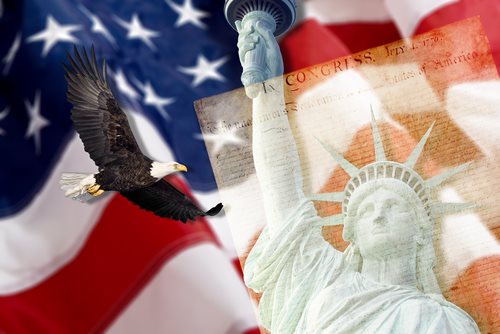The Background Behind
What is “We the People”?
“We the People”, which are the words introducing the reader to the text of the Constitution of the United States; also known as the Preamble to the Constitution, these words are widely-considered as amongst the most recognizable phrases within the scope of history. The Constitution of the United States was ratified by 9 out of the 12 States in attendance to the Philadelphia Convention, which lasted from May 5th to September 17th, 1787 – the final day of the Constitutional Convention is analogous with the day on which the Constitution was ratified.
What is the meaning of “We the People”?
The Preamble to the Constitution allows for a mandating of the goals implicit within the text of the Constitution of the United States; furthermore, “We the People” has also been credited with the provision of a communicable forum in which the intended audience, applicable statutes, and eligible individuals can be conveyed. Through the usage of the phrase “We the People”, citizens of the United States are classified as appropriate entities to which the rights, legislation, and subsequent legal statues expressed within the text of the Constitution are afforded.
Implicit Controversy with Regard to “We the People”
Within its immortalized wording, ‘We the People’ was set forth with the intention of finalizing an implication of the entities presupposed in the classification of the pronoun ‘We’. The Preamble of the Constitution has accounted for a variety of conjectures with regard to any or all implicit meaning and intention. However, the phrase “We the People” has been widely interpreted as a means to both instill, as well as ensure Constitutional rights to the citizens of the United States.
What Comes After “We the People”?
Following the Preamble, the following components comprise the Constitution of the United States:
The Preamble
The following is the text of the Preamble prefaced by “We the People”:
“We the People of the United States, in order to form a more perfect Union, establish Justice, insure domestic Tranquility, provide for the common defense [sic], promote the general Welfare, and secure the Blessings of Liberty to ourselves and our Posterity, do ordain and establish this Constitution for the United States of America.” - Preamble of the Constitution of the United States
Articles of the Constitution
Statues Addressing the Legislative Branch of the Government
Statues Addressing the Executive Branch
Statues Addressing the Judicial Branch
Statues Addressing Individual Statehood
Statues Addressing the Process of Constitutional Amendments
Statues Addressing Constitutional Legality
The Signatures of the Constitution
Constitutional Amendments
Constitutional Amendments range from textual adjustments to statutory modification with regard to the original text of the Constitution of the United States; as of the start of 2011, there currently exist 27 Amendments to the United States Constitution:
The Bill of Rights is the categorization of the first 10 Constitutional Amendments
Subsequent to the Bill of Rights, there exist 17 Constitutional Amendments concerning the entities named within the phrase “We the People”
